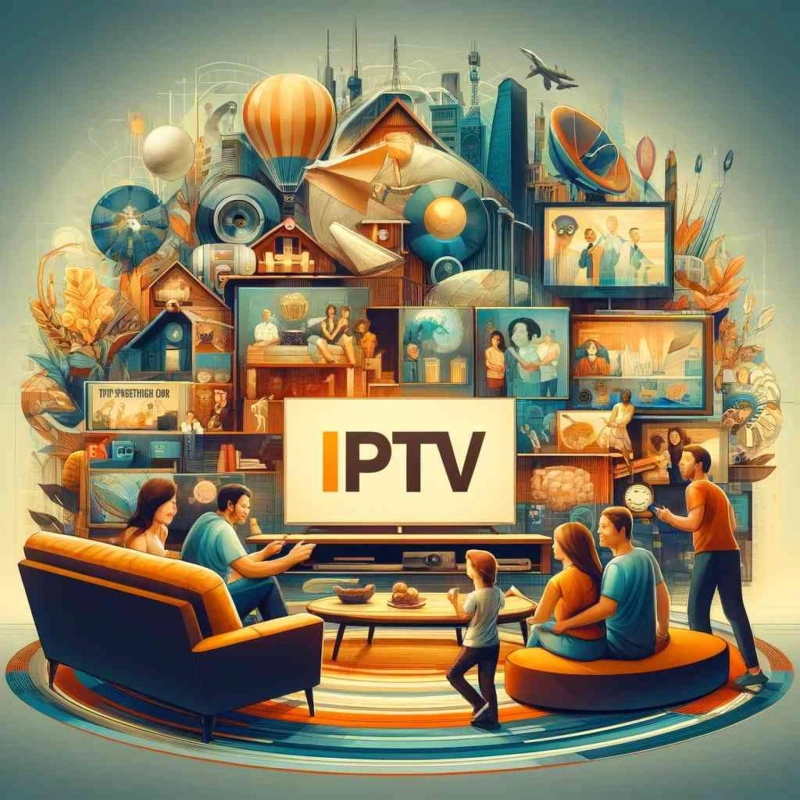Embarking on an exploration of IPTV in the UK reveals a dynamic landscape where tradition meets innovation. This detailed examination ventures into the intricacies of IPTV services in the United Kingdom, delineating its evolution, current trends, and the transformative impact it has on traditional broadcasting and consumer habits. As we traverse through the realm of IPTV, we unveil how it has become a pivotal component of digital entertainment in the UK, offering insights into its operation, advantages, challenges, and the prospective future in this vibrant market.
Intro
The introduction of IPTV (Internet Protocol Television) in the United Kingdom marks a significant shift from traditional television viewing practices. Unlike conventional broadcasting methods reliant on satellite or cable, IPTV streams content directly over the internet, facilitating a more personalized and interactive user experience. This evolution commenced in the early 2000s, gaining momentum as broadband internet became more widespread and reliable, setting the stage for a new era of television consumption.
Understanding IPTV: How It Transforms Viewing Experiences
IPTV operates on a unique premise, utilizing the internet to deliver television services directly to subscribers through a broadband connection. This technology enables viewers in the UK to access live broadcasts, video on demand (VOD), and other interactive services with unprecedented flexibility and control. The essence of IPTV lies in its capacity to offer a tailored viewing experience, allowing users to watch what they want, when they want, and how they want.
The Spectrum of IPTV Services in the UK
The UK's IPTV landscape is characterized by its diversity, with services ranging from subscription-based platforms to free-to-view applications. These offerings cater to a wide array of interests and demographics, showcasing everything from blockbuster movies and leading TV series to niche sports and international programming. Notable IPTV services in the UK include:
Subscription Services: Providers like BT TV and TalkTalk TV offer packages that combine live TV with on-demand content, integrating IPTV into their broadband services.Free-to-View Platforms: Services such as BBC iPlayer and ITV Hub allow viewers to stream live broadcasts and catch up on missed programs without a subscription, promoting accessibility and convenience.Specialized IPTV Services: Niche platforms cater to specific interests, offering content that ranges from foreign language programming to specialized sports coverage, meeting the diverse needs of the UK's multicultural populace.Advantages of IPTV: A New Paradigm of Convenience and Choice
IPTV's ascension in the UK is propelled by its myriad benefits, which include:
Enhanced Convenience: IPTV eliminates the constraints of traditional TV schedules, offering on-demand access to content, live pause features, and personalized recommendations.Superior Quality: With advancements in broadband technology, IPTV provides high-definition (HD) and even 4K streaming options, delivering superior picture and sound quality.Expansive Content Library: IPTV platforms boast extensive libraries of content, encompassing a vast range of genres, languages, and interests, far surpassing the limitations of traditional TV channels.Interactive Features: Beyond mere viewing, IPTV incorporates interactive elements such as voting, shopping, and educational services, enriching the user experience.Navigating Challenges: The IPTV Landscape in the UK
While IPTV offers a futuristic approach to television, it faces its share of challenges in the UK, including:
Regulatory Hurdles: The UK's regulatory framework continues to evolve in response to the growing IPTV market, addressing issues related to copyright, content licensing, and consumer protection.Network Capacity and Quality: Dependence on internet connectivity means that IPTV's performance is directly tied to network capacity and stability, which can vary across different regions.Competition: The IPTV market in the UK is highly competitive, with services vying for viewers in a landscape crowded with traditional broadcasters, satellite providers, and streaming platforms.The Future of IPTV in the UK: Trends and Predictions
Looking ahead, IPTV's trajectory in the UK is poised for continued growth and innovation. Emerging trends suggest a future where IPTV integrates more seamlessly with smart home technologies, offering even more personalized and interactive viewing experiences. Additionally, the ongoing rollout of high-speed internet infrastructures, like 5G, promises to further enhance IPTV's performance and reliability, making high-quality streaming accessible to a broader audience.
Furthermore, as content consumption patterns evolve, IPTV services are likely to embrace more flexible pricing and packaging options, catering to the growing demand for customization and value. Collaborations between IPTV providers and content creators could also proliferate, leading to the development of exclusive programming and unique viewing experiences that further differentiate IPTV from traditional television and streaming competitors.
Conclusion: IPTV's Transformative Role in the UK's Digital Landscape
IPTV in the UK represents more than just an alternative to traditional television; it signifies a paradigm shift in how media is consumed, offering a window into the future of entertainment. As technology advances and viewer preferences continue to evolve, IPTV stands at the forefront of innovation, challenging the status quo and redefining the television experience. With its promise of enhanced flexibility, quality, and interactivity, IPTV is not merely adapting to the digital age—it's leading the charge, shaping the future of television in the UK and beyond.


